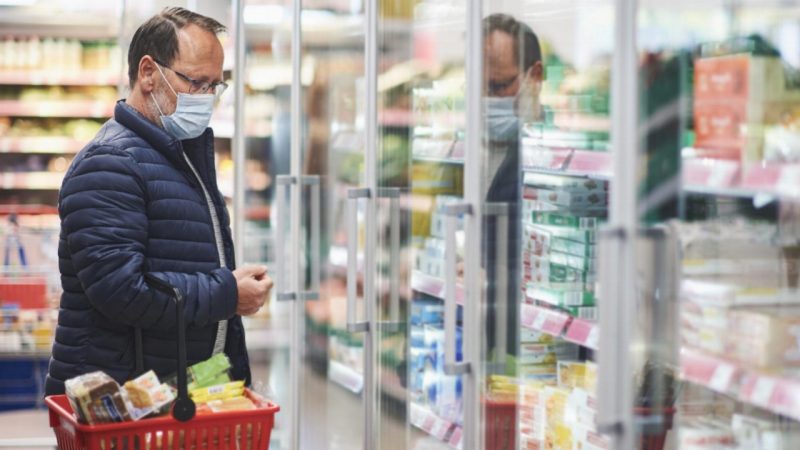- New data from the Australian Bureau of Statistics (ABS) shows the Consumer Price Index (CPI) has dropped a record 1.9 per cent in the last quarter
- CPI measures the change in what an average good or service costs an Australian consumer
- The 1.9 per cent drop over the June quarter is the largest drop ever recorded since reporting began over 72 years ago
- The Federal Government’s childcare subsidy and lower school fees prompted the wider CPI fall, as did lower fuel prices
- However, some goods increased in price as demand skyrocketed, including cleaning products and toilet paper
- The inflation rate has also dropped 0.3 per cent in the year to June 2020, for only the third time in history
New data from the Australian Bureau of Statistics (ABS) shows the Consumer Price Index (CPI) has dropped a record 1.9 per cent in the last quarter, the biggest fall on record.
However, it was parents who saw the most benefit, with lower childcare costs and schooling fees fuelling the wider drop, as well as lower fuel prices.
CPI breakdown
Essentially the CPI is the measure of the average cost of common household goods and services, which tracks how much prices are changing.
Over the June quarter, the ABS said the CPI fell 1.9 per cent, which is the biggest drop ever recorded since CPI began tracking consumer good and services back in 1948.
“This was the largest quarterly fall in the 72-year history of the CPI,” ABS Chief Economist Bruce Hockman confirmed.
The change differed for each of Australia’s states and territories, ranging from a one per cent drop in Adelaide to a down 2.5 per cent slump in Darwin.
Household goods breakdown
The record drop in CPI is mainly linked to the Federal Government’s decision to heavily subsidise childcare prices during the early days of the COVID-19 pandemic.
There was a 95 per cent reduction in childcare costs over the June quarter, along with a 16.2 per cent drop in preschool and primary school fees.
Fuel was also a big contributor to the drop, with fuel prices dropping dramatically as the global oil price plunged due to low demand.
The average cost of fuel fell 19.3 per cent over the three months to June, dragging down the CPI.
“Excluding these three components [fuel, childcare costs and school fees], the CPI would have risen 0.1 per cent in the June quarter,” explained Bruce.
While fuel and childcare costs were down, rent also decreased slightly over the quarter, falling 1.3 per cent.
But tobacco, alcohol, packet food and furniture prices all increased in the three months to June 30.
Interestingly, the ABS found several COVID-19 related ‘essentials’ — such as chest freezers, office furniture, and canned foods — jumped in price following strong demand.
Cleaning products and toilet paper also jumped up in cost, rising 6.2 per cent and 4.5 per cent respectively, as COVID-19 caused mass panic buying.
Inflation also drops
Along with the 1.9 per cent drop in CPI, the rate of inflation over the 2020 financial year also fell by 0.3 per cent.
The ABS Chief Economist said this was only the third time in history negative inflation had been recorded.
“Since 1949, this was only the third time annual inflation has been negative. The previous times were in 1962 and 1997-98,” said Bruce Hockman.

